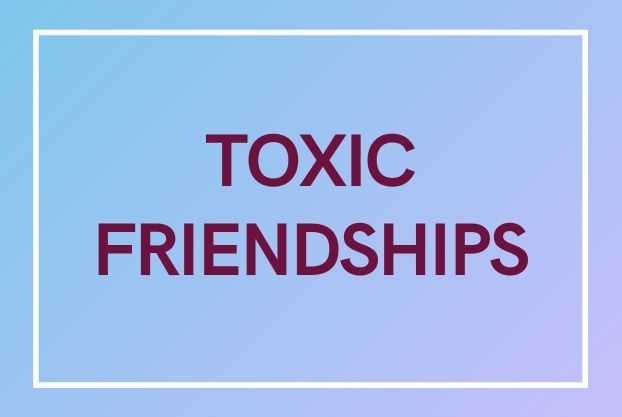Friendships form an important part of our social support system. Healthy friendships involve reciprocal support, warmth, acceptance, and love. We tend to stay in friendships that exhaust and drain us because of the unspoken contract that exists between friends. However, these friendships could turn toxic and detrimental to your mental health. This is when you need to re-evaluate your boundaries
Signs you might be in a toxic friendship
- Your relationship feels unbalanced: This means that you are often giving more than you get. They tend to take advantage of your company without offering any real support in return. The friendship feels conditional.
- You do not trust them: Because they have no respect for your boundaries, you don’t confide in them. Despite not wanting to be around them as your authentic self, you tend to stick around for the sake of friendship.
- They affect your relationships with others: You already know they badmouth you behind your back. Moreover, even if you seek support elsewhere, they make you feel guilty for those friendships. You also tend to make excuses for their behavior, especially when they embarrass you around people that are important to you.
How to deal with toxic friendships?
None of us wants to lose a friend, and we tend to hold on to them despite being hurt. There are two ways this could go: either you keep making excuses for your toxic friend (even to yourself) or you choose to have healthy boundaries and conversations. Remember that you do not deserve to be treated badly in any situation much less in a friendship. In order to initiate a conversation, ask yourself a few questions:
- What don’t you like about how your friend treats you?
- How does it make you feel?
- Do you like being friends with this person?
- Would you like this behavior to stop or would you like an apology too?
- Do you think your friend hurts you intentionally?
- Would they change their behavior if you let them know that they’re hurting you?
At the same time, it’s important to reflect on your own behavior and stay away from any “eye for an eye” behavior.
- If your friend tends to get mean over texts, ignore the messages to the best of your ability. Even if this happens on more public forums, don’t intentionally leave them out of group chats.
- If they make you feel bad about yourself, it is completely valid to avoid or reduce contact with them. However, that does not mean that you should encourage mutual friends to ignore them.
- If you need another opinion, talk about your issues with your friends rationally. Don’t badmouth or spread rumors about your toxic friend.
- Stand up to their toxicity without insulting them or calling them names.
In the end, if the friendship does feel like it is worth saving, there are three things you need to do:
- Handle things when they happen: While standing up to someone who tends to look down on you is nerve-wracking, doing so politely and respectfully helps set clear boundaries and improve your relationship.
- Establish Boundaries: Establishing boundaries is essential for a healthy friendship. For example, if your friend is being rude over text, you should restrict your contact time with them.
- Take a break: Sometimes, you just need space. Either let them know outright that you need a break or do it subtly. When you can’t talk about needing space in a straightforward manner, tell them you have things that are taking up time in your life and you can’t spend as much time with them- allowing a natural break.
Wanting to salvage your friendships is great, but it’s important to understand that friendships are a two-way street. If the other person does not reciprocate your consideration, you’re allowed to take breaks or break off the relationship in its entirety. All friendships need to allow for mutual growth, with both parties actively working towards a healthy, non-toxic friendship.

